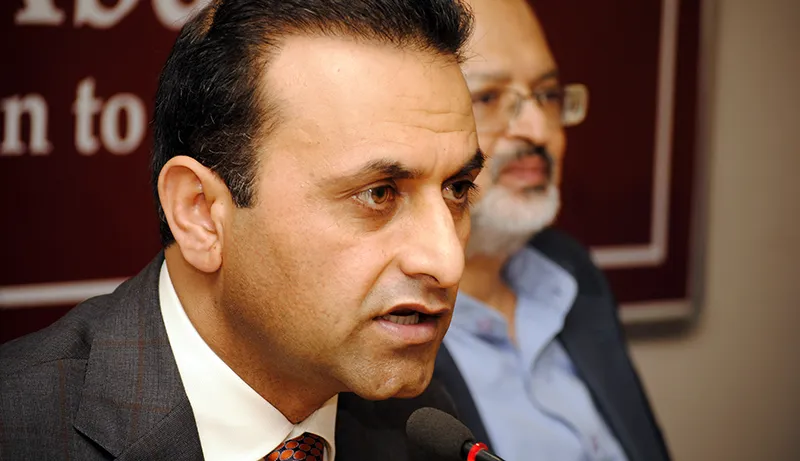-
CENTRES
Progammes & Centres
Location
Afghanistan thinks that the Istanbul Process, as a mechanism established in November 2011 for regional cooperation to ensure stability in the country, is still under-utilised, says Afghanistan's Ambassador to India Shaida M Abdali.

Afghanistan thinks that the Istanbul Process, as a mechanism established in November 2011 for regional cooperation to ensure stability in the country, is still under-utilised.
This was stated by Afghanistan’s Ambassador to India Shaida M Abdali while delivering a talk on "Afghanistan in transition: The way forward" at Observer Research Foundation in Delhi on September 10. The event was chaired by ORF Director Sunjoy Joshi.
The Ambassador said to make the best use of the Istanbul Process, one that can tangibly promote political stability in the country durably, the key countries of the "Heart of Asia" must identify the spoilers in the region and hold them accountable.
"By spoilers, I mean entities, including states and their proxies, which remain strategically obsessed with destabilization of Afghanistan," the Ambassador said.
He said over the past 12 years, various ways have been tested to encourage these spoilers to cooperate, to do what is right for themselves and the environment surrounding them. But their response has only grown more negative, even though such reaction has proven counter-productive to their own narrow, zero-sum self-interest.
Thanking India for leading the Trade, Commerce and Investment CBM as part of the Istanbul Process framework, the Ambassador said some would doubt if such a regional move within the Istanbul Process would ever happen, given the complexity of bilateral and multilateral dynamics involving the relevant countries of the region.
"But I think the time is ripe, in the light of these countries’ increasing shared interests in the security and economic sectors, which have compelled reluctant countries in other parts of the world to come together in search of long-term solutions to their common problems, problems that would not simply go away unless they joined hands to do something about them.
"And that is what the countries of our region need to do too, to single out the spoilers and collectively reward or punish them into sincere, result-oriented cooperation", the Ambassador emphasised.
Noting that India has "no Afghanistan exit strategy", the Ambassador said the Afghan government is expecting more Indian involvement in the form of increased assistance to Afghanistan. Such aid would not only bolster security in Afghanistan but also ensure regional stability, a common interest of all immediate and extended neighbours, including Pakistan.
He underlined why Afghanistan, India and Pakistan should work hand in hand toward responding to the call of our three nations for sustainable peace, stability and prosperity throughout South Asia and beyond.
The Ambassador said the Afghan government remains committed to ending the war in Afghanistan through peace, but the kind of peace that would actually result in further strengthening of our sovereignty and territorial integrity. With this mind, the government is cautiously seeking a negotiated settlement with the armed opposition, including the Taliban.
The talk was following by more than an hour of question and answer session on a wide range of topics - geo-politics, security, trade and commerce, economy and Afghanistan’s relations with China, Pakistan, Iran and India.
Text of the Ambassador’s speech
The views expressed above belong to the author(s). ORF research and analyses now available on Telegram! Click here to access our curated content — blogs, longforms and interviews.